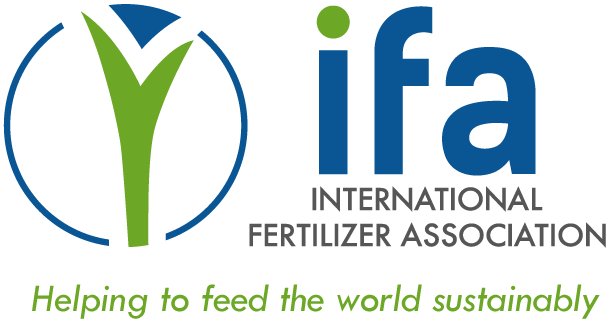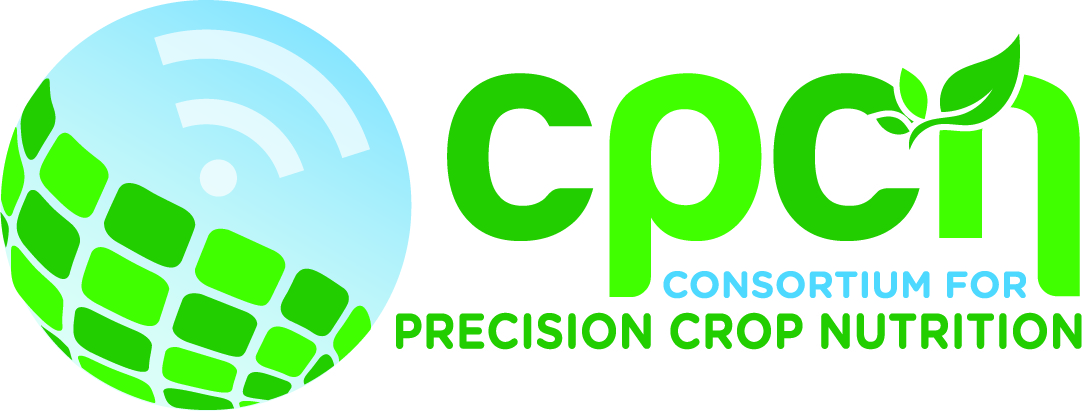CROP NUTRIENT DATA
The Consortium for Precision Crop Nutrition (CPCN) and their member partners have collaborated to form comprehensive databases for researchers and agriculture professionals to access and contribute to global field trial data from soil and crop nutrient concentrations.
OUR VISION
Easy and open access to high-quality field trial data will accelerate the development, validation, and dissemination of sustainable crop nutrition advisory solutions that:
Increase farmers’ yields and profit
Improve soil health and human nutrition
Positively impact the environment
One Year On:
How the Open Data Crop Nutrition Platform is Growing to Support Agricultural Sustainability
In Q3 2022, the International Fertilizer Association (IFA), Agmatix, and the Consortium for Precision Crop Nutrition (CPCN) collaborated to launch a new open data crop nutrition platform, https://cropnutrientdata.net/. The first two databases, focused on crop nutrient omission and crop nutrient content data, made fast progress and resulted in a published paper on estimating maize harvest index and nitrogen concentrations in grain and residue. Since then, further progress has been made, and many new contributors have joined the push for accessible, high-quality open data to accelerate research and innovation on improving yields and sustainability through better crop nutrition
OUR DATABASES
GLOBAL CROP NUTRIENT REMOVAL DATABASE
Overview
Coordinating Partners
The Global Crop Nutrient Removal Database is a universally recognized, open, and comprehensive database of crop nutrient concentrations under an array of production and environmental conditions to determine the total amount of nutrients removed from the field in the harvested portion of the crop. This database concentrates on nutritionally and industrially important crops, with data on nutrient concentrations, crop yield, residues, and other associated data from those experiments gathered from a wide range of researchers and institutes.
In collaboration with Wageningen University & Research (WUR), the International Fertilizer Association (IFA) and Agmatix, the Global Crop Nutrient Removal Database was formed to promote open-science for analyzing crop nutrients big data and help ensure sustainable crop production worldwide. In this recent publication, we demonstrate how to predict maize crop harvest index and nitrogen concentrations in the grain and residue using advanced statistics, machine learning and globally available data from the global crop nutrient removal database.

“This data will be used to improve our understanding of ongoing trends in crop nutrient uptake and removal and make it easier to create decision support systems to determine how to optimize crop production in a sustainable way under changing environmental conditions.“
Dr. Achim Dobermann | Chief Scientist, IFA
NUTRIENT OMISSION TRIAL DATABASE
Overview
Coordinating Partners
The Nutrient Omission Trial Database enables researchers to compare fertilizer crop nutrient concentration requirements across different production environments. This comprehensive database includes different data sets from multiple sources and has been enriched with site-specific data, such as weather and geospatial information on soils, crops, and other relevant attributes.
In collaboration with the African Plant Nutrition Institute (APNI), the International Fertilizer Association (IFA), the Innovative Solutions for Decision Agriculture (iSDA) and Agmatix, the Nutrient Omission Trial Database was formed to consolidate legacy nutrient omission research data from multiple sources into a single, standardized, and open database. The aim of the project is to support site-specific recommendations and optimize nutrient management.

“We are excited to be involved in the project as this data is a critical enabler for Virtual Agronomist, our digital advisor for smallholders, and we hope the community can come together to create a shared resource which will lift what’s possible across the whole ag-tech ecosystem.”
Jamie Collinson | CTO, iSDA
INTERNATIONAL POTASH INSTITUTE (IPI) DATABASE
Overview
Coordinating Partners
The International Potash Institute (IPI) Database provides researchers, policymakers, and agricultural experts with vital insights into optimizing potassium utilization for improved crop production. This collaboration not only enhances our understanding of effective agricultural practices but also encourages the exchange of knowledge and the pursuit of sustainable farming methods worldwide.
The International Potash Institute (IPI) joined forces with the Consortium for Precision Crop Nutrition (CPCN) and its member partners in their mission to promote open data sharing. As part of this collaboration, IPI has made significant data contributions available on cropnutrientdata.net emerging from their extensive portfolio of research endeavors spanning 70 years, encompassing around 250 projects. These initiatives encompassed diverse regions, incorporating 1385 trials conducted in Africa, India, China, Vietnam, Indonesia, and select parts of South America. These trials specifically focused on studying the impact of potassium in fertilizer products in comparison to local practices. Through rigorous experimentation and data collection, these trials shed light on the influence of potassium products on crop yield and the practical usage of such products within local agricultural contexts.

“By collaborating with the CPCN and contributing to the open database, we hope to provide researchers, policymakers, and agricultural experts with vital insights into optimizing potassium utilization for improved crop production. We benefit from this collaboration too, by enhancing our understanding of agricultural practices and by encouraging the exchange of knowledge and the pursuit of sustainable farming methods worldwide.”
Mr. Shay Mey-Tal | Director, IPI
Database Use
CONTRIBUTE DATA:
You can contribute to these open databases by sharing your research data to promote open-science collaboration and to:
Gain new insights and perform meta-analysis for deeper insights from your data across different trial locations and fertilizer types.
Advance science and contribute toward achieving multiple UN Sustainable Development Goals (SDG), including reducing hunger and poverty in a sustainable manner.
Improve your fertilizer support for the development needs of your organization’s decision support systems.
USE DATA:
You can use these open databases to aid in your future research and:
Develop site-specific decision support systems to determine how to optimize crop production in a sustainable way under changing environmental conditions.
Improve assessment of crop nutrient removal rates, long-term trends of nutrient demand, economical budget planning, and more.
Support benchmarking of key yield and nutrient concentrations performance parameters such as attainable yields, yield gaps, and agronomic nutrient use efficiencies.
Database Use
CONTRIBUTE DATA:
You can contribute to these open databases by sharing your research data to promote open-science collaboration and to:
Gain new insights and perform meta-analysis for deeper insights from your data across different trial locations and fertilizer types.
Advance science and contribute toward achieving multiple UN Sustainable Development Goals (SDG), including reducing hunger and poverty in a sustainable manner.
Improve your fertilizer support for the development needs of your organization’s decision support systems.
USE DATA:
You can use these open databases to aid in your future research and:
Develop site-specific decision support systems to determine how to optimize crop production in a sustainable way under changing environmental conditions.
Improve assessment of crop nutrient removal rates, long-term trends of nutrient demand, economical budget planning, and more.
Support benchmarking of key yield and nutrient concentrations performance parameters such as attainable yields, yield gaps, and agronomic nutrient use efficiencies.
COORDINATING
PARTNERS
The Consortium for Precisi on Crop Nutrition (CPCN) was established by APNI in 2020 to co-create common data, standards and resources that enable its members to develop, validate and disseminate their own customized nutrient management solutions.

Wageningen University & Research (WUR) is a public university in Wageningen, Netherlands, specializing in technical and engineering subjects, life science and is widely regarded as the world’s top agricultural research institution.

The International Fertilizer Association (IFA) promotes the efficient and responsible production, distribution and use of plant nutrients. This mission plays a critical role in helping to feed the world sustainably. Members include fertilizer producers, traders and distributors, service providers, research organizations, agtech start-ups and non-governmental organizations.
The African Plant Nutrition Institute (APNI) is a not-for-profit research and development organization founded in 2019 and based in Benguérir, Morocco. Their mission is enhanced plant nutrition for a resilient and food-secure Africa.

Innovative Solutions for Decision Agriculture (iSDA) helps smallholder farmers across Africa increase their productivity using advanced technologies while also improving their profitability and well-being of their communities.

Agmatix is the world’s first single engine that drives the agronomic innovation cycle from research and experimental data into meaningful insights. The Agmatix platform can read and interpret thousands of the different data points commonly used across the agricultural industry to help scientists, agronomists and farmers make actionable decisions.
